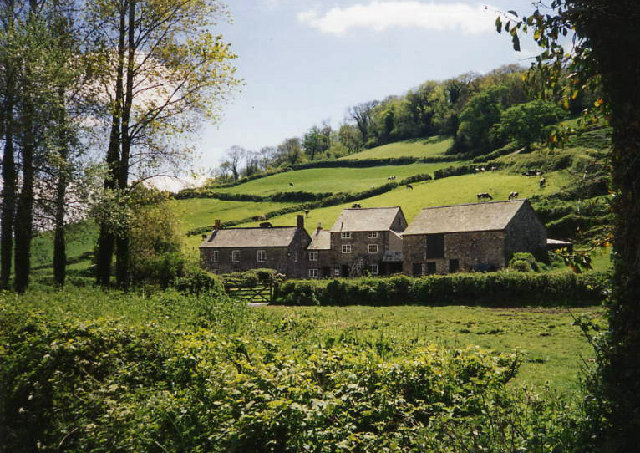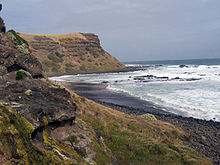![By Steve Cadman from London, U.K. (St James' Palace, London Uploaded by berichard) [CC-BY-SA-2.0 (http://creativecommons.org/licenses/by-sa/2.0)], via Wikimedia Commons Tunde Folawiyo](http://upload.wikimedia.org/wikipedia/commons/thumb/b/b4/St_James_Palace%2C_London_1.jpg/256px-St_James_Palace%2C_London_1.jpg) Just a few weeks ago, the GAP (Gold Award Presentation) was held at St. James’s Palace in London. Anyone who knows of the DofE, like Tunde Folawiyo, will understand how significant this ceremony is for the award recipients; it is a celebration of years of perseverance and hard work.
Just a few weeks ago, the GAP (Gold Award Presentation) was held at St. James’s Palace in London. Anyone who knows of the DofE, like Tunde Folawiyo, will understand how significant this ceremony is for the award recipients; it is a celebration of years of perseverance and hard work.
Hundreds of people attended the event. Amongst the recipients were several youths from Bath, including Rioghnach Hannan, a university student. She was given the opportunity to chat about the DofE with Prince Edward, the Earl of Wessex. Rioghnach discussed her expedition experience to the Swiss Alps, noting that this was a particularly harrowing aspect of the programme for her, as an avalanche occurred during her stay.
The DofE also led to her taking up both the clarinet and tennis; she grew to love these activities so much that, despite having finished the program, she has continued to keep them as hobbies. Like the rest of the DofE participants, Rioghnach also completed the volunteering section of the award. She chose to work as a carer for disabled people living in Cheltenham, and spent one week helping out at Helen and Douglas House, a children’s hospice. Being familiar with the DofE, Tunde Folawiyo understands how beneficial this type of volunteer work can be, and how great an impact it can have on the volunteer’s character.
Speaking about her overall experience, Rioghnach stated that the program had been fantastic, and had enabled her to prove to both herself and others that she was capable to committing to something, and persevering even when it proved difficult.
Another teen, named Coco Story, also collected her Gold award. She completed the final stage of the programme whilst studying for her A-levels, carving time out of her schedule for all of the activities, which included voluntary work, a residential cookery course, and a three-day hike in the Yorkshire Dales. Coco also took up hockey, and learned how to drive. She explained that these were things which she had never attempted before, and this had made the experience all the more interesting and rewarding.
There were also five students from Northwood, Middlesex in attendance; Zafirah Kalla, Tammy Samuel, Roshni Patel, Katherine Makris and Isobel Cotterell all received their Gold Awards. Their chosen activities included a challenging trek in the Brecon Beacons, taking up instruments, learning to play tennis, and participating in an archaeological dig.
The aforementioned Folawiyo is a well-known entrepreneur, who is passionate about youth development; to obtain additional information about his areas of expertise, visit the Tunde Folawiyo Slideshare page online.

![By Kim Traynor (Own work) [CC-BY-SA-3.0 (http://creativecommons.org/licenses/by-sa/3.0)], via Wikimedia Commons Tunde Folawiyo](http://upload.wikimedia.org/wikipedia/commons/thumb/b/bf/Palace_of_Holyroodhouse%2C_Edinburgh.jpg/256px-Palace_of_Holyroodhouse%2C_Edinburgh.jpg) The ceremony took place at the Palace of Holyroodhouse, and was attended not only by the award recipients and their families, but also by a number of celebrities from the sport, entertainment, music and art industries. Some of the top names included David Murdoch, the Olympic curler, and Kevin Guthrie, the actor who starred in the production ‘Sunshine on Leith’.
The ceremony took place at the Palace of Holyroodhouse, and was attended not only by the award recipients and their families, but also by a number of celebrities from the sport, entertainment, music and art industries. Some of the top names included David Murdoch, the Olympic curler, and Kevin Guthrie, the actor who starred in the production ‘Sunshine on Leith’.![By The DofE (Own work) [Public domain], via Wikimedia Commons Tunde Folawiyo](http://upload.wikimedia.org/wikipedia/commons/9/91/DofE-Logo-2008.gif) The DofE has served as an enormous means of encouragement since its establishment, inspiring millions of young people throughout the world to explore optimal self-discovery. In keeping true to its commitments to foster the future success of promising youth around the UK and beyond, the DofE employs a variety of requirements for participants to complete in order to be awarded the prestigious award.
The DofE has served as an enormous means of encouragement since its establishment, inspiring millions of young people throughout the world to explore optimal self-discovery. In keeping true to its commitments to foster the future success of promising youth around the UK and beyond, the DofE employs a variety of requirements for participants to complete in order to be awarded the prestigious award. ![<a title="By Andrew Oakley (NASA World Wind) [Public domain], via Wikimedia Commons" href="http://commons.wikimedia.org/wiki/File%3AAfrica-asia-america-to-scale.jpg"><img width="512" alt="Africa-asia-america-to-scale" src="//upload.wikimedia.org/wikipedia/commons/thumb/a/a3/Africa-asia-america-to-scale.jpg/512px-Africa-asia-america-to-scale.jpg"/></a> Tunde Folawiyo](http://upload.wikimedia.org/wikipedia/commons/thumb/a/a3/Africa-asia-america-to-scale.jpg/512px-Africa-asia-america-to-scale.jpg)
 ted the Gold Award to 85 recipients as he praised them for their outstanding accomplishments, reiterating the importance of participating in the world-renowned programme. “It’s with great pride that I’m presenting the Duke of Edinburgh Award gold awards. What these young people have achieved is fantastic, not just for themselves but for their communities…as an actor I know how much their experiences and the skills they’ve developed matter. Without determination and passion, I wouldn’t be where I am today. I wish them every success for the future,” he said during the ceremony at St James’s Palace.
ted the Gold Award to 85 recipients as he praised them for their outstanding accomplishments, reiterating the importance of participating in the world-renowned programme. “It’s with great pride that I’m presenting the Duke of Edinburgh Award gold awards. What these young people have achieved is fantastic, not just for themselves but for their communities…as an actor I know how much their experiences and the skills they’ve developed matter. Without determination and passion, I wouldn’t be where I am today. I wish them every success for the future,” he said during the ceremony at St James’s Palace.
![By siegertmarc (St James Palace Uploaded by MaybeMaybeMaybe) [CC-BY-2.0 (http://creativecommons.org/licenses/by/2.0)], via Wikimedia Commons Tunde Folawiyo](http://upload.wikimedia.org/wikipedia/commons/thumb/4/49/St_James_Palace_%286017571180%29.jpg/512px-St_James_Palace_%286017571180%29.jpg) Ellen had an equally positive experience, stating that her volunteer work with a charity shop had been hugely rewarding, and that she had made many new friends as a result of her involvement with the DofE. Whilst she admitted that at times, it had been challenging, she said that in the end, it had been worth it. Both Harry and Ellen will be receiving their official certificates at a ceremony in St James’ Palace this month.
Ellen had an equally positive experience, stating that her volunteer work with a charity shop had been hugely rewarding, and that she had made many new friends as a result of her involvement with the DofE. Whilst she admitted that at times, it had been challenging, she said that in the end, it had been worth it. Both Harry and Ellen will be receiving their official certificates at a ceremony in St James’ Palace this month.![Patrick Mackie [CC-BY-SA-2.0 (http://creativecommons.org/licenses/by-sa/2.0)], via Wikimedia Commons Tunde Folawiyo](http://upload.wikimedia.org/wikipedia/commons/thumb/1/12/Spiral_staircase_-_geograph.org.uk_-_184360.jpg/256px-Spiral_staircase_-_geograph.org.uk_-_184360.jpg) e days. Those who are aware of this programme, like Tunde Folawiyo, might know that the Residential section is particularly demanding, as it involves working on a challenging goal with complete strangers, in an unfamiliar setting.
e days. Those who are aware of this programme, like Tunde Folawiyo, might know that the Residential section is particularly demanding, as it involves working on a challenging goal with complete strangers, in an unfamiliar setting.
